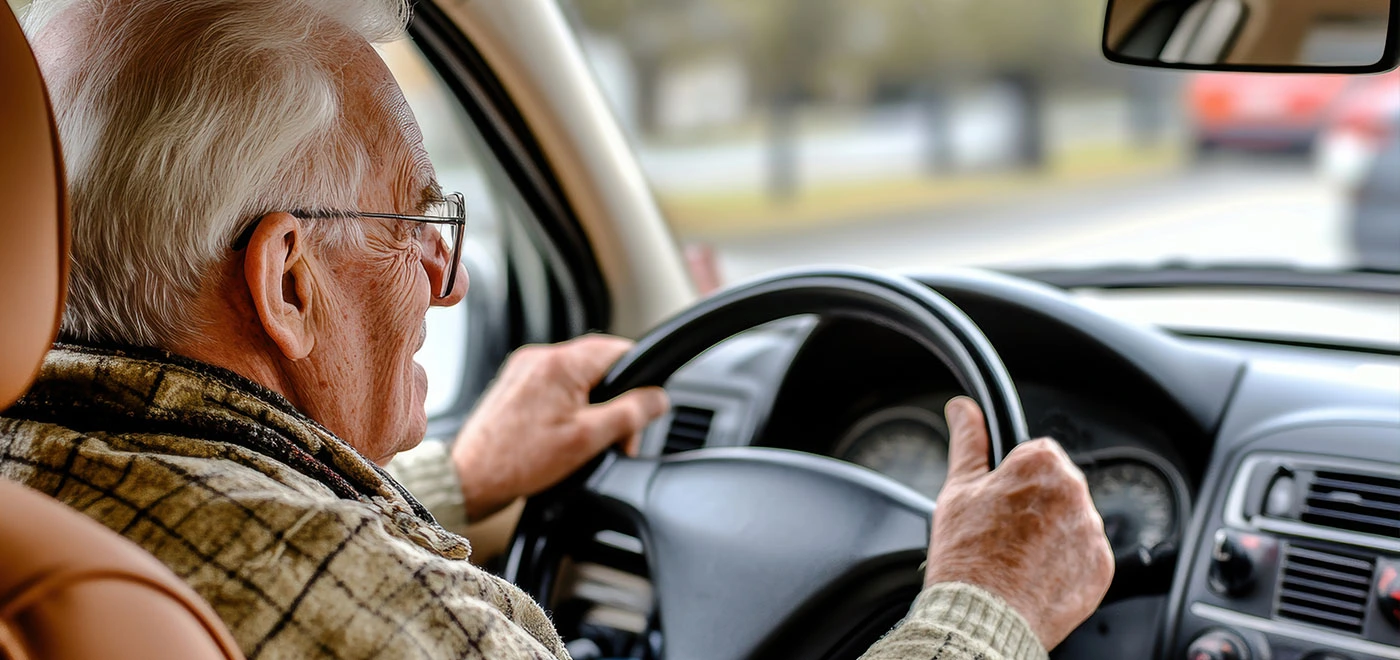Caregiver Safety Tips: Home & Road Safety Guide for Aging Loved Ones
Caregiver Safety Tips: Home & Road Safety Guide for Aging Loved Ones

Keeping your aging loved one safe at home and on the road is a cornerstone of effective caregiving.
Home Safety Tips for Elderly
Creating a hazard-free living space is essential for preventing accidents and promoting safe mobility for older adults. Home modifications can significantly reduce the risk of falls and other common household injuries that threaten elderly independence and safety.
Preventing Falls at Home
Falls represent one of the most serious safety concerns for aging loved ones, often resulting in significant injuries that can compromise long-term independence. Implementing these preventative measures can create a safer living environment for seniors:
- Remove hazards like loose rugs, electrical cords, and unnecessary clutter from walkways to create clear paths throughout the home
- Install secure handrails along both sides of staircases and in key areas like bathrooms to provide stability during transitions
- Ensure proper lighting throughout the home, with special attention to nighttime safety – place lamps near beds and install motion-activated nightlights in hallways, bathrooms, and bedrooms
- Consider non-slip mats in showers and bathtubs, along with shower chairs or grab bars to prevent bathroom falls
- Rearrange frequently used items to be within easy reach, eliminating the need for step stools or excessive reaching
- Evaluate flooring throughout the home, replacing highly polished surfaces with non-slip alternatives where practical
Emergency Preparedness for Elderly
Being prepared for emergencies is crucial for aging loved ones who may have limited mobility or health conditions that make crisis response challenging. Consider these safety measures:
- Invest in a reliable home alert system that allows your loved one to call for help with the press of a button – particularly valuable for seniors living alone
- Create an emergency contact list with large, readable print and place copies by each phone and on the refrigerator
- Program emergency numbers into their phones with one-touch dialing capabilities
- Establish a regular check-in schedule to monitor their wellbeing, whether through daily calls, visits, or technology-assisted check-ins
- Consider a medication management system with alarms or reminders to prevent missed doses or accidental overdoses
Road Safety for Aging Loved Ones
Maintaining the ability to drive safely represents a significant aspect of independence for many seniors. However, age-related changes in vision, hearing, reflexes, and cognitive processing can impact driving ability, requiring thoughtful monitoring and gradual adjustments to ensure safe driving for seniors.
Vehicle Maintenance and Health Check-ups
- Schedule regular vehicle maintenance to ensure the car remains in optimal condition – well-functioning brakes, proper tire pressure, and working lights are especially important for senior drivers
- Encourage consistent vision and hearing check-ups specifically designed to evaluate fitness to drive – conditions like cataracts, macular degeneration, or hearing loss can significantly impact driving safety
- Discuss medication side effects with healthcare providers, particularly those that might cause drowsiness, dizziness, or delayed reaction times
- Consider adaptive equipment like wider mirrors, steering wheel grips, or seat cushions that can compensate for physical limitations while driving
Driving Limitations for Seniors
- Monitor for warning signs of unsafe driving by checking their vehicle for new dents, scrapes, or damage that might indicate difficulty with spatial awareness or reaction time
- Suggest nighttime driving limitations as vision changes often make low-light conditions particularly challenging for older adults
- Recommend avoiding driving during adverse weather conditions like heavy rain, fog, or snow when reflexes and visibility are compromised
- Consider route planning that avoids high-traffic areas, complex intersections, or highways when possible
- Discuss alternative transportation options for times when driving might be unsafe or overly stressful
Empowering Senior Decision-Making
- Approach safety conversations with respect and compassion, acknowledging the emotional significance of independence
- Involve your aging loved one in the decision-making process about their safety, offering options rather than directives
- Frame safety measures as ways to extend independence rather than restrict it
- Consider a professional driving evaluation from an occupational therapist specializing in senior driving assessment
- Gradually introduce changes rather than implementing multiple restrictions simultaneously
Additional Caregiving Safety Resources
Road Safety Resources
- For additional information on keeping your loved one safe behind the wheel, visit the Federal Highway Administration, which offers guidance for senior drivers and their caregivers
- The AARP Driver Safety Program provides refresher courses specifically designed for older drivers
Caregiver Support
- Contact the Caregiver Help Desk at 855-227-3640 to speak with caregiver experts who can answer questions, help you find resources, or simply listen when you need support
- Explore AgingCare.com for additional caregiver safety tips, caregiver forums, and expert advice on long-term caregiving strategies
- Consider joining a local caregiver support group to share experiences and learn new safety techniques from others in similar situations
Remember that safety planning works best as a collaborative process that respects your loved one’s autonomy. By involving them in decisions and utilizing available resources like the Caregiver Help Desk and specialized safety programs, you can develop effective long-term caregiving strategies that protect their wellbeing while preserving their dignity and independence.



